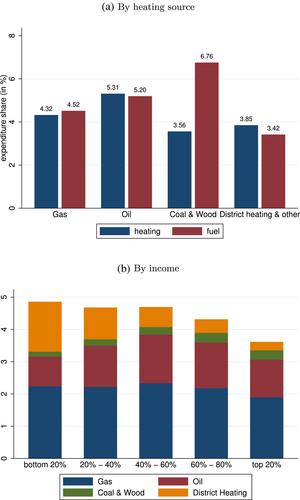如果?停止从俄罗斯进口能源对德国宏观经济和分配的影响
IF 1.6
3区 经济学
Q2 ECONOMICS
引用次数: 0
摘要
本文讨论了德国经济可能被切断从俄罗斯进口能源的经济影响。我们使用了一个多部门开放经济模型和一种基于总生产函数的简化方法来估算能源投入冲击的影响。我们的研究表明,由于能源进口的替代和生产链的重新分配,影响可能会很大,但可以控制。在短期内,相对于没有能源中断的基线情况,俄罗斯停止能源进口将导致产出损失,损失范围在国内生产总值的 0.5% 到 3% 之间。本文章由计算机程序翻译,如有差异,请以英文原文为准。

What if? The macroeconomic and distributional effects for Germany of a stop of energy imports from Russia
This paper discusses the economic effects of a potential cut-off of the German economy from Russian energy imports. We use a multi-sector open-economy model and a simplified approach based on an aggregate production function to estimate the effects of a shock to energy inputs. We show that the effects are likely to be substantial but manageable because of substitution of energy imports and reallocation along the production chain. In the short run, a stop of Russian energy imports would lead to an output loss relative to the baseline situation, without the energy cut-off, in the range 0.5% to 3% of GDP.
求助全文
通过发布文献求助,成功后即可免费获取论文全文。
去求助
来源期刊

Economica
ECONOMICS-
CiteScore
2.40
自引率
0.00%
发文量
49
审稿时长
5 weeks
期刊介绍:
Economica is an international journal devoted to research in all branches of economics. Theoretical and empirical articles are welcome from all parts of the international research community. Economica is a leading economics journal, appearing high in the published citation rankings. In addition to the main papers which make up each issue, there is an extensive review section, covering a wide range of recently published titles at all levels.
 求助内容:
求助内容: 应助结果提醒方式:
应助结果提醒方式:


